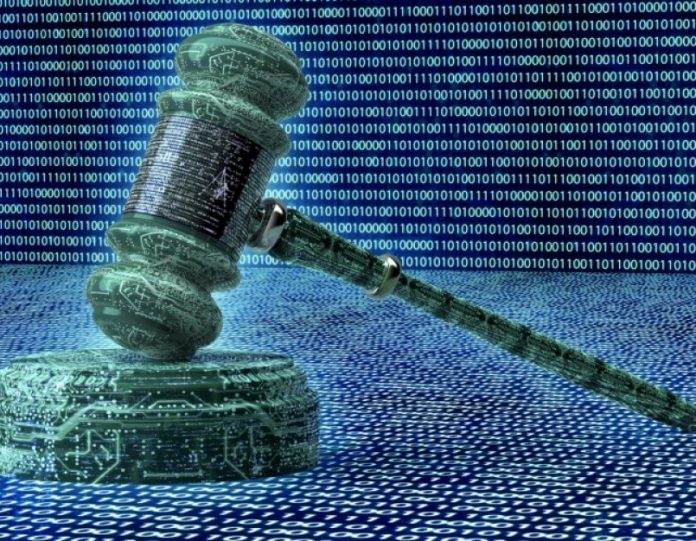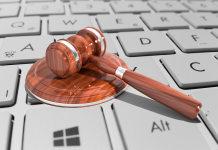This article is written by Smaranika Sen from Kolkata Police Law Institute. This article deals with Egypt’s cybercrime laws.
Table of Contents
Introduction
We are now almost at the end of 2021, and every aspect of our lives is somewhat dependent on the internet. The pandemic showed us that almost everything under the sky is possible, starting from work from home to online health checkups and so on, the list never ends. However, as we know that every coin has two sides, the same is true with the enormous growth of the internet. In 2020, the commission of cybercrime was rampant worldwide. Research by Deep Instincts showed that in the year 2020, the malware increased by 358% overall and ransomware by 435% as compared to 2019. Some other highlights of the research were: cyberattacks on Android phones were 263%, manipulation of Microsoft Office documents by 112%, malicious activity almost 653%.
Thus, with the advancement of technology and the reign of the internet all over the world, it is crucial to have legislation in the cyber arena. Lately, Egypt has introduced its new cyber laws. A lot of discussions, controversies have been observed regarding this new cyber law. Through this article, I will analyze, and try to highlight the key features of Egypt’s new cyber law.
Anti-Cyber and Information Technology Crimes Law
This Anti-Cyber and Information Technology Crimes Law (Law No. 175 of 2018) was introduced in Egypt on 15th August 2018. The purpose of the enactment of the law was to regulate internet activities, complement the media, and the press laws in Egypt. This law has emphasized deeply the activities of media and the press; especially penalizing the production of fake news, unlicensed online activity, etc.
Overview of the law
The law is composed of 45 Articles. The authority of the law is the National Telecommunication Regulation Authority of Egypt and the competent Minister is the Minister of Communications and Technology Affairs of Egypt. The law is addressed to:
- Both natural and legal persons
- Managers of legal persons
- Internet service providers
- Web administrators
- State officials
The law penalizes various crimes like crimes related to the infringement of:
- Surpassing the Right of Access
- Unlawful sniffing
- Data, information, and information systems integrity
- Website design
- State information systems
- Information network integrity
- Privacy and unlawful information content
Highlighting provisions of the law
Encroaching on the security of information networks, systems and technologies
This provision is contained in Article 13 of Chapter 1. It recognizes the crime of unrighteous benefit from the telecommunications and information services and the technology thereof. The provision states that if any person is found out unduly using any network system or any means of information technology in communication services, audio services, or visual broadcasting channel, they will be punished with imprisonment with not less than three months along with a fine ranging from not less than ten thousand Egyptian Pounds to not more than fifty thousand Egyptian Pounds. Based on the crime, the punishment can also be either of these two penalties.
Crimes committed by information systems and technologies fraud and encroachment
This provision is contained in Article 23 of Chapter II. It mostly recognizes crimes against credit cards, services, and electronic payment tools. This provision states that any person who is caught unduly accessing numbers and data of bank credentials, or of any modes of e-payments will be punished with imprisonment with not less than three months along with a fine ranging from not less than thirty thousand Egyptian Pounds to not more than fifty thousand Egyptian Pounds. Based on the crime, the punishment can also be either of these two penalties.
If it is found that the person has committed such crime in the view of obtaining funds or services from a third party, then such person will be punished with imprisonment with not less than six months along with a fine ranging from not less than fifty thousand Egyptian Pounds to not more than one hundred thousand Egyptian Pounds. Based on the crime, the punishment can also be either of these two penalties.
If it is found that the person has committed such a crime of obtaining funds and services from a third party and has been able to seize such funds and services for himself or for anyone else, he will be punished with imprisonment not less than one year along with a fine of not less than one hundred thousand Egyptian Pounds.
Crimes related to invasion of privacy and illegal content
This provision is contained in Article 25 of Chapter III. The provision states that if anyone is found infringing any family principle or value of Egyptian society, or sells any private data to any website or e-system without one’s consent, or sends an email without one’s consent, or publishes any kind of information or image which is personal without such person’s knowledge irrespective of the fact that such information is true or false; he will be punished with imprisonment with not less than one year along with a fine ranging from not less than fifty thousand Egyptian Pounds to not more than two hundred thousand Egyptian Pounds. Based on the crime, the punishment can also be either of these two penalties.
If any person has committed this crime against any public legal person, then such person will be punished with imprisonment along with a fine ranging from not less than one hundred thousand Egyptian Pounds to not more than three hundred thousand Egyptian Pounds. Based on the crime, the punishment can also be either of these two penalties.
These were some of the crucial offences that were recognised in the anti-cybercrime law of Egypt.
Critical evaluation of the law
As already stated above, cyber laws are very important for every State now. However, it goes without saying that every legislation must be enacted and implemented in such a way that it is beneficial for the common people. At times, it is observed that certain legislations are implemented in such a way that it becomes detrimental rather than beneficial to commoners.
Regarding the anti-cybercrime laws of Egypt, a lot of protests, debates, and discussions took place. Let us analyze the issues in detail below:
What is the issue
Censorship
The most critical issue that had been observed regarding this law was the legalization and the reinforcement of censorship. According to a statement published by Reporters Without Borders, the anti-cybercrime law legalized and reinforced censorship along with blocking websites. It also criminalized the usage and operation of these websites. Article 7 states the procedures and decisions issued in respect of the site block writs. It states that if any broadcasting of websites both inside or outside the State display any images, films, or public materials etc., or jeopardizes national security or is in contravention with this law, then such broadcasting would be deemed as an offence. In such situations, the Government grants the investigating authority the power to block those websites.
Public reaction
Various citizens and especially the media personnel and journalists have emphasized the point that these provisions are curbing the right to freedom and expression. The ambit of threat to national security is too widened to the extent of curbing commoner rights. Some people have stated that previously, in Egypt a lot of sites have been blocked under the purview of security reasons and authorities have arrested various news journalists, news bloggers, news editors, satirical bloggers, etc. Even a mere visit to a banned website is a punishable offence.
Increased liability of web administrators and managers
Another critical issue faced by this law is the provisions related to the liability of web administrators band managers. Article 27 of the law deals with crimes committed by the site administrator. It states that any person who manages, creates, or uses any website or private account which aims to commit any punishable crime or facilitates to do the same, then such person will be punished. The accused will be punished with imprisonment with not less than two years along with a fine ranging from not less than one hundred thousand Egyptian Pounds to not more than three hundred thousand Egyptian Pounds. Based on the crime, the punishment can also be either of these two penalties.
Article 29 states that if any person responsible for managing a website or private account or information system or email exposes the same to crime then such person will be punished with imprisonment with not less than one year along with a fine ranging from not less than twenty thousand Egyptian Pounds to not more than two hundred thousand Egyptian Pounds. Based on the crime, the punishment can also be either of these two penalties. It further states that if someone commits the same due to negligence, then such person will be punished with imprisonment with not less than six months along with a fine ranging from not less than ten thousand Egyptian Pounds to not more than one hundred thousand Egyptian Pounds. Based on the crime, the punishment can also be either of these two penalties
Article 35 states the criminal liability of legal persons. It states that if the manager of legal person becomes aware of the fact that certain entities or websites have been victims of crime and does not inform the same competent authority, then such person will be punished with imprisonment with not less than three months along with a fine ranging from not less than thirty thousand Egyptian Pounds to not more than one hundred thousand Egyptian Pounds. Based on the crime, the punishment can also be either of these two penalties.
Article 36 states that if the manager of the legal person is aware of the crime or facilitates the crime in the view of obtaining the interest of himself or for a third party, then such person will be punished with a similar penalty as imposed on the original perpetrator of the crime.
People’s reaction
The provisions as stated have triggered a lot of people and enhanced public debate. Their question was that, will the managers or owners, or admins of any websites face criminal liability for any user-generated crime. According to certain people, the law could prosecute them. However, it can be stated that Article 27 gives a very broad spectrum to state offences. Thus, a lot of acts come under the purview of it, even though from a general perspective, it cannot be treated as a criminal offence. A narrow interpretation could have been beneficial. The broad spectrum of Article 27 could also hold web administrators liable for such acts which are technically beyond one’s control.
Other issues
Articles 25, 29, and 39 are defined very broadly. The interpretations might be victims of a lot of mistakes. Therefore, more narrowed or accurate definitions could be beneficial.
Conclusion
The anti-cybercrime law of Egypt has certain provisions which are too broad to be accurately interpreted. The issue regarding censorship cannot be overlooked as Egypt ranks 166th out of 180 countries in the World Press Freedom Index. It clearly shows that the journalists there are not given enough freedom to free speech and expression. However, it goes without saying that a proper judgment regarding this law could only be given after its implementation in the country for some time.
References
- https://www.eff.org/deeplinks/2018/07/draconian-new-cybercrime-bills-vietnam-and-egypt-will-only-increase-censorship
- https://ifex.org/egypts-new-cybercrime-law-legalizes-internet-censorship/
- https://www.mondaq.com/security/820028/the-new-egyptian-anti-cybercrime-law-regulates-legal-responsibility-for-web-pages-and-their-content
- https://www.albawaba.com/news/draft-new-cybercrime-law-egypt-criticized-rights-groups-852214
Students of Lawsikho courses regularly produce writing assignments and work on practical exercises as a part of their coursework and develop themselves in real-life practical skills.
LawSikho has created a telegram group for exchanging legal knowledge, referrals, and various opportunities. You can click on this link and join:
https://t.me/joinchat/L9vr7LmS9pJjYTQ9
Follow us on Instagram and subscribe to our YouTube channel for more amazing legal content.
 Serato DJ Crack 2025Serato DJ PRO Crack
Serato DJ Crack 2025Serato DJ PRO Crack











 Allow notifications
Allow notifications


